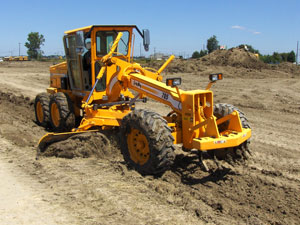When you see an operator maneuvering that heavy equipment with effortless ease, there is one thought that enters your mind, “How is he so skilled in working with that equipment?” Well, like all other technical skillsets that you need to put in a lot of effort to learn, operation of heavy equipment also demands learning along the same lines.
In order to become an ace heavy equipment operator, you will need to put in a lot of effort when it comes to gaining the specialized skillsets and technical knowhow that is expected from such operators. But getting the requisite knowledge is not enough. You must have heard the saying, ‘practice makes a man perfect’. The same holds true in this case as well. An operator will have to spend endless hours with the equipment in order to become an expert in its use.
Here’s a look at the stepwise process that can help you become a heavy equipment operator.
Step 1: Research
First make very sure whether becoming an operator of heavy lifting equipment is something that you want to do. The job might look manly and interesting from afar but when you are actually doing it, it might not look as desirable. So be well aware of the job responsibilities of a heavy equipment operator. Get a very clear idea of the job description and duties and ask yourself whether this is what you want to do.
Once you are sure, start gathering the necessary information about the requirements for becoming a heavy equipment operator.
n Job responsibilities
Typical job responsibilities of heavy equipment operators are to maneuver heavy machines safely as well calculate the appropriate load that can be carried by the equipment. The person will also be in charge of equipment maintenance.
n Work location
Operators can be asked to work at construction sites, lumber yards, industrial sites, oil rigs etc. At times they might have to work in remote locations that are thousands of miles away from the nearest city.
Step 2: Undergo Training
Once you have done the research you need to undergo and complete the training required to become an operator. There are three ways you can get this training including:
n Training through union apprenticeship
n State Apprenticeship
n Technical School
Typically, apprentices need to be registered with the state before they go through the training program. This training includes classroom training where individuals gain theoretical knowledge about the functioning of heavy equipment and their upkeep; it also includes on the job training with approved companies. The training program will take 3-4 years to complete.
Step 3: Earn your License and Certification
Once you complete your training program, don’t think you are home and dry. You still have to earn a state license and/or a certification from a national organization. It’s only with a certificate in your hand that you will be authorized to operate different types of heavy equipment like cranes, forklifts, etc.
Usually this certification expires at the end of every five years and will need to be renewed after passing a recertification exam.
To Conclude
It’s important to remember that you will have a huge responsibility on your hands when you start operating heavy equipment. This is why you need to go through an exhaustive and highly challenging training program that will give you an in-depth understanding of not just the heavy equipment but also how to use it safely. Any mistake while operating such equipment can actually endanger the life of the people around the equipment. This is why you should make sure you are making the most of the training program.
Before embarking on the long and arduous training schedule, it’s important to ask experienced operators about the training program and the study involved. You can also ask them about various tips that will help see you through the program. Go in prepared and you will come out with a license and certification in your hands.
Becoming a heavy equipment operator is not an easy task and the best operators like L&D Earthmoving treat every day as a learning experience. This is why they are so good at it.

